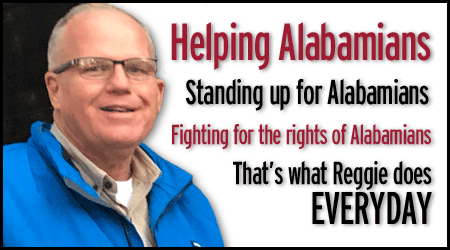
Will Disputes & Probate Attorney in Tuscaloosa
If you’re looking for a helping hand getting your life in order after the death of a loved one, Tuscaloosa probate attorney Reginald W. Smith, has solutions designed to help you.
This type of loss is undoubtedly one of life’s most challenging experiences, but when there’s conflict over a loved one’s final wishes, it makes it even harder to achieve a sense of closure and peace. Even if there is no dispute over the division of a loved one’s estate, the number of hours and amount of travel required to complete the necessary work can be both physically and emotionally exhausting. Trusting your case to a skilled Alabama probate attorney can relieve you of much of this burden.
There are two main types of lawyers practicing in this field: those who focus on taking care of the administrative details of an estate, making the entire process easier for the family, and those who represent clients involved in lengthy or confusing disputes over the division of a loved one’s estate. Some lawyers focus on the entire field of law and are skilled and experienced enough to handle both types of issues. At the offices of Reginald W. Smith, Attorney At Law, you’ll get that focus and experience.
If you need legal help and advice after the passing of a loved one, or another party is challenging your legal right to inherit, it’s time to call Tuscaloosa probate attorney Reginald W. Smith, Attorney At Law.
WHAT IS A WILL CONTEST?
A will contest ensues when someone brings a legal challenge to a will filed for probate. When probate is initiated, the probate court allows interested parties an opportunity to object to the will. The challenger seeks to overturn the entire will or one or more provisions of the will because he or she believes the will is invalid in some way. Alabama state statutes determine how the will contest proceeds in the judicial system and mandate that a will challenge be brought within certain time limits. Alabama statutes also provide the grounds for contesting a will. Normally, the grounds include incapacity, undue influence, fraud, improper execution, or the existence of a later valid will.
A testator must have “testamentary capacity” in order to make a valid will. Generally that requires that the testator be of “sound mind,” as shown by the testator’s capacity to (1) understand the nature and extent of his or her property, (2) know the persons who would naturally benefit from the will, and (3) realize that the will he or she is executing does indeed makes a disposition of his or her property. A testator may be shown to lack testamentary capacity if it can be proved that at the time of executing the will he or she exhibited signs of dementia or mental illness or was under the influence of alcohol or drugs. Generally, the mere fact that a testator shows signs of advancing age, feebleness, or eccentricity is not enough, in and of itself, to prove testamentary incapacity invalidating a will.
A will can be overturned if the challenger proves that at the time the will was made, the testator was subjected to such strong influence by another that the testator made a disposition of estate property that he or she otherwise would not have done. Coercion and duress are examples of undue influence.
To invalidate a will on grounds of fraud, the challenger generally must show that the testator relied on a fraudulent misrepresentation and was deceived by it when he or she executed the will. Evidence of only the opportunity or motive for fraud, without showing that the fraud had an effect on the testator, is not enough to invalidate the will.
Tuscaloosa probate attorney Reginald W. Smith, has solutions designed to help you. Please use the contact form on my website for a free initial consultation about your probate and will needs.

